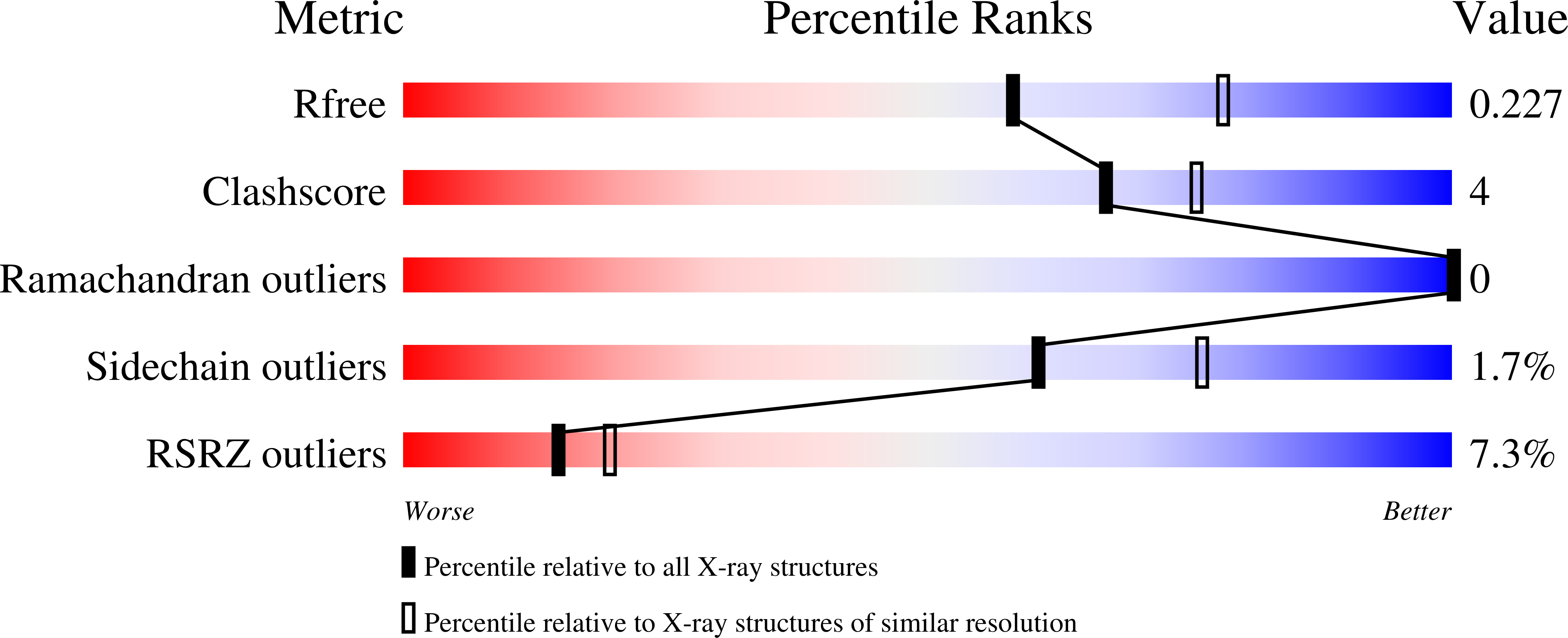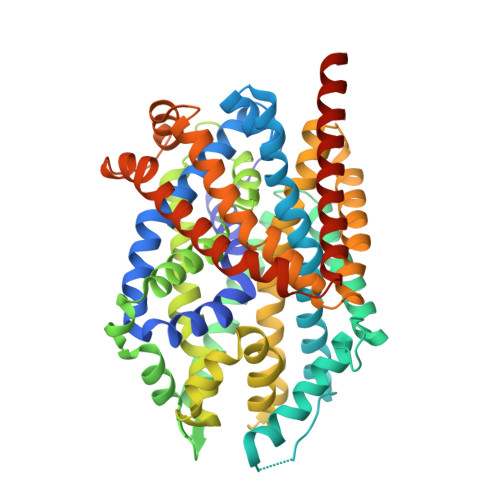Structural basis for action by diverse antidepressants on biogenic amine transporters.
Wang, H., Goehring, A., Wang, K.H., Penmatsa, A., Ressler, R., Gouaux, E.(2013) Nature 503: 141-145
- PubMed: 24121440
- DOI: https://doi.org/10.1038/nature12648
- Primary Citation of Related Structures:
4MM4, 4MM5, 4MM6, 4MM7, 4MM8, 4MM9, 4MMA, 4MMB, 4MMC, 4MMD, 4MME, 4MMF - PubMed Abstract:
The biogenic amine transporters (BATs) regulate endogenous neurotransmitter concentrations and are targets for a broad range of therapeutic agents including selective serotonin reuptake inhibitors (SSRIs), serotonin-noradrenaline reuptake inhibitors (SNRIs) and tricyclic antidepressants (TCAs). Because eukaryotic BATs are recalcitrant to crystallographic analysis, our understanding of the mechanism of these inhibitors and antidepressants is limited. LeuT is a bacterial homologue of BATs and has proven to be a valuable paradigm for understanding relationships between their structure and function. However, because only approximately 25% of the amino acid sequence of LeuT is in common with that of BATs, and as LeuT is a promiscuous amino acid transporter, it does not recapitulate the pharmacological properties of BATs. Indeed, SSRIs and TCAs bind in the extracellular vestibule of LeuT and act as non-competitive inhibitors of transport. By contrast, multiple studies demonstrate that both TCAs and SSRIs are competitive inhibitors for eukaryotic BATs and bind to the primary binding pocket. Here we engineered LeuT to harbour human BAT-like pharmacology by mutating key residues around the primary binding pocket. The final LeuBAT mutant binds the SSRI sertraline with a binding constant of 18 nM and displays high-affinity binding to a range of SSRIs, SNRIs and a TCA. We determined 12 crystal structures of LeuBAT in complex with four classes of antidepressants. The chemically diverse inhibitors have a remarkably similar mode of binding in which they straddle transmembrane helix (TM) 3, wedge between TM3/TM8 and TM1/TM6, and lock the transporter in a sodium- and chloride-bound outward-facing open conformation. Together, these studies define common and simple principles for the action of SSRIs, SNRIs and TCAs on BATs.
Organizational Affiliation:
Vollum Institute, Oregon Health & Science University, 3181 SW Sam Jackson Park Road, Portland, Oregon 97239, USA.

















